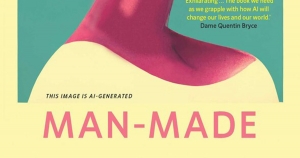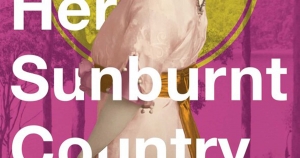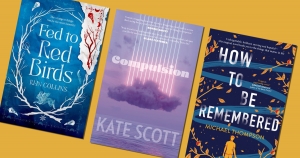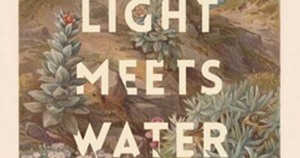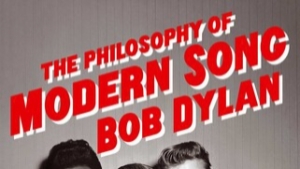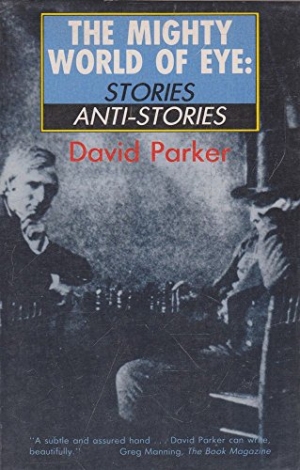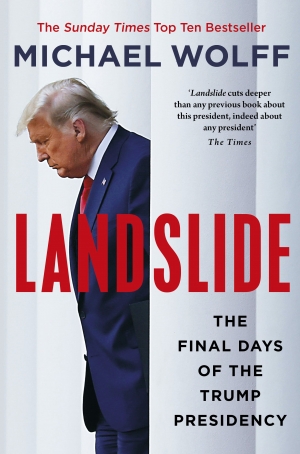Simon & Schuster
Marilyn Lake reviews ‘The Art of Power: My story as America’s first woman Speaker of the House’ by Nancy Pelosi
As leading US historian Eric Foner wrote in his classic account, The Story of American Freedom (1999), it is the ‘story of freedom’ that conveys Americans’ favourite idea of itself. Of course, its meaning and uses change over time. It is a flexible value. We only need to look at candidates’ promises in the US election, with Kamala Harris declaring, ‘We choose freedom’ and Donald Trump (‘We believe in the majesty of freedom’) planning to build ten new futuristic ‘freedom cities’.
... (read more)In E.L. Doctorow’s The Waterworks (his 1994 novel of post-civil war America), the narrator McIlvaine addresses the reader: ‘We did not conduct ourselves as if we were preparatory to your time. There is nothing quaint or colourful about us.’ Doctorow reminds the reader that our sense of modernity is an illusion. As Delia Falconer has eloquently noted apropos Doctorow’s novel, the contemporary historical novelist has a valuable role to play:
... (read more)Ruby O'Connor reviews 'Man-Made: How the bias of the past is being built into the future' by Tracey Spicer
Man-Made: How the bias of the past is being built into the future recounts findings from a six-year ‘mission’ to ‘identify the villains’ in the world of Artificial Intelligence (AI). Uncovering the history and future of AI through a feminist lens, Tracey Spicer puts the conservatism at the heart of these oft-touted ‘revolutionary technologies’ on full display. Spicer contextualises AI’s current omnipresence in a world ruled by money, the military, and men. Interlacing an impressive range of vignettes, Man-Made introduces the reader to everything from AI’s origins in women’s weaving, to racist soap dispensers, to Sexbots, to gaming, to driverless cars, to childcare robots, to the end of humanity.
... (read more)Susan Sheridan reviews 'Her Sunburnt Country: The extraordinary literary life of Dorothea Mackellar' by Deborah Fitzgerald
Deborah Fitzgerald’s biography, Her Sunburnt Country: The extraordinary literary life of Dorothea Mackellar, struggles to convince readers of the validity of both those adjectives. Mackellar’s life was not especially literary: she did not mix in literary circles, and had no need to write for a living, although as a young woman she published many poems in journals. Nor was it an extraordinary life, except in the sense that it was extremely privileged by her family’s wealth and social standing. It was an unusual life for a woman of her time and place, in that she did not marry; but nor did she live independently of her family until after her parents’ deaths. By then she was in her forties and had effectively stopped publishing verse.
... (read more)On the surface, there is little connection between these three début novels. Rijn Collins’s Fed to Red Birds (Simon & Schuster, $32.99 pb, 247 pp) sketches an intimate portrait of migration, beautifully illustrating the migrant’s immersion within and isolation from their adopted land. Elva, a young Australian woman, hopes to remain in Iceland, her absent mother’s home country, despite the unique challenges it presents her. Michael Thompson’s How to be Remembered (Allen & Unwin, $32.99 pb, 344 pp) poses an intriguing metaphysical question: what happens if, each year on his birthday, every trace of one boy’s existence is erased? How can a person survive when nobody, not even his parents, knows who he is? Tommy Llewellyn is determined to find the answer and outfox this universal reset. Kate Scott’s Compulsion (Hamish Hamilton, $32.99 pb, 279 pp) revels in music, drugs, food, fashion, and hedonism. Lucy Lux attempts to uncomplicate her chaotic partying lifestyle by escaping to a remote seaside town she remembers from her childhood, where her passions and problems blaze anew. Despite their many differences, these are all essentially stories of self-discovery, coming of age, and obsession.
... (read more)Susan Midalia reviews 'Where Light Meets Water' by Susan Paterson
Susan Paterson’s first novel, Where Light Meets Water, offers readers the various pleasures of the traditional Bildungsroman. Spanning the years 1847 to 1871, it centres on the life of Thomas Rutherford, a man torn between devotion to his work as a mariner and an abiding passion for painting seascapes. The predominant use of an omniscient narrator provides unfettered access to his conflicted inner life and, less frequently, to that of his spirited wife Catherine. The vivid depiction of a host of global settings, including London, the markets of Calcutta, Melbourne during the gold rush, and an increasingly prosperous Dunedin, adds to the effect of a densely particularised and amplified world. Immersive and absorbing, the novel is a triumph of the old-fashioned art of verisimilitude.
... (read more)Andrew Ford reviews 'The Philosophy of Modern Song' by Bob Dylan
'You got a habit, a bad habit. You fell in love with the hard stuff. You fell for the foxy harlot, the vamp who lives around here somewhere, and you’re silly about her, she’s got you hooked.’
... (read more)Wenche Ommundsen reviews 'The Mighty World of Eye: Stories/Anti-Stories' by David Parker
Fictions about academic life have always been about sex, but these days the sexiest thing to write about is theory. Fortunately for the writer who wants to write about both sex and theory, the equation between sexual and textual intercourses has excellent credentials in the poststructuralist canon. Followers of Barthes and Derrida have taken to the pleasures of the theoretical text with an eagerness aptly defined by the sexual metaphors they overindulge in. Others, less enamoured by theoretical discourses, have found that these provide an excellent target for parody and satire, and thus manage at once to partake in the playful intercourse and retain a critical, mocking distance. What tends to be forgotten, amidst all this textual cavorting, is that literary theory is a reasonably rigid intellectual discipline: playful though it may be, it is easy to get it all wrong!
... (read more)A father sits on a couch that is set between the beds of his young sons, who must be eased into sleep with a story. The scene is illuminated by a lamp in the shape of the globe, which is as it should be, for he shows them his world through the simple patterns of these stories: his cherishing of the natural world; his insight into happy reversals of fortune; his humour. The father’s stories are spellbinding, reassuring the children and also their mother, who tells herself that no harm can come to this man in the middle of a tale. She is reminded of the old motif from the Thousand and One Nights, where the storyteller wards off death with a gripping narration.
... (read more)Timothy J. Lynch reviews 'Landslide: The final days of the Trump presidency' by Michael Wolff and 'Peril' by Bob Woodward and Robert Costa
The Trump presidency (2017–21) has generated more books across its four years than most presidencies have across eight. It is ironic that an avowedly anti-intellectual president, who advertises his dislike of reading, has had such a profound impact on political literature. These two books – Landslide and Peril – will likely remain the most read of that growing collection. As their titles suggest, each is a chronicle of the chaos that consumed the United States during and after the 2020 election campaign.
... (read more)


